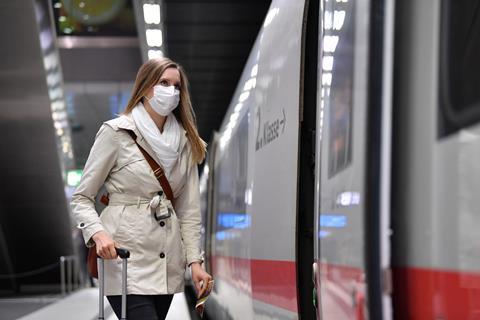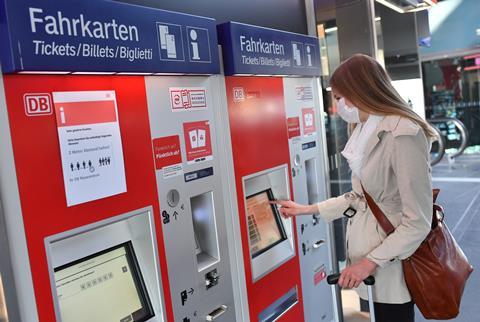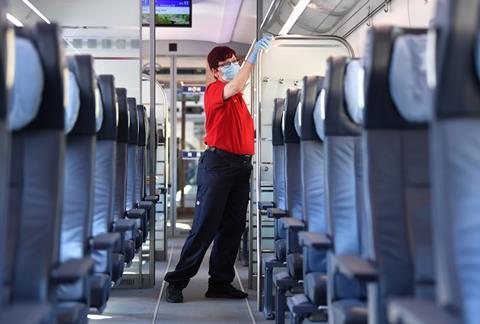
GERMANY: State aid measures to support the rail freight and long-distance passenger sectors and reduce track access charges during the coronavirus pandemic have been approved by the European Commission.
However, private operators’ association Mofair is calling for further funding proposed by the government to be used for cross-industry measures rather than to support state incumbent Deutsche Bahn.
DB was faced with collapsing traffic during the early stages of the pandemic, and requested an equity increase of €4·5bn from the federal government in May 2020. Two months later the Bundestag resolved to provide €5bn of support for the rail sector. However, this was not restricted to a specific purpose, and other rail operators expressed concern that support for DB could distort competition. As a result the government opted to channel much of the support towards a reduction in track access charges for all operators.

The European Commission has now given approval under its state aid rules for three access charge reduction schemes with a total value of €3·076bn. These will allow a 98% reduction in charges for long-distance passenger operators for the period from March 1 2020 to May 31 2022, and for freight operators for the periods from March 1 2020 to May 31 2021 and separately from June 1 to December 31 2021.
The Commission determined that the measures were proportionate and necessary to achieve the objective of supporting modal shift from road while not leading to undue competition distortions.
The Commission has also cleared a €550m equity injection to compensate the DB Fernverkehr inter-city subsidiary for losses relating to domestic travel from March 16 to June 7 2020 and for international travel between March 16 and June 30 2020.
Long-distance ridership in that period averaged around a third the level of the previous year, falling to 10% at the lowest point. The operator continued to run approximately 75% of its services, even though all long-distance passenger trains in Germany are operated on a commercial basis; as a result Mofair and the European independent operators’ alliance AllRail expressed concern about tacit state backing.

Approving the €550m capital injection, the Commission noted that this had taken into account the access charge reductions, and included a claw-back mechanism in case public support exceeded the damage actually suffered by DB Fernverkehr.
Responding to the decision, Mofair President Tobias Heinemann said on August 11 ‘the approved emergency aid for the first lockdown for DB Fernverkehr is, in our opinion, still too generous’. He suggested that a commercial operator ‘would either have had to adapt the train service to demand or have sought emergency allocation by the federal government based on transparent criteria’.
Heinemann said the EU competition watchdog had made clear that it would not be pressured into approving state aid. ‘In view of the stop sign from Brussels, the federal government should finally reallocate the requested, but not approved, remaining €1·4bn into cross-company aid for the rail sector’, he suggested.
The temporary state aid framework permitting EU member states to support companies during the coronavirus crisis will remain in place until the end of December, and the Commission intends to assess whether it should be extended.

















